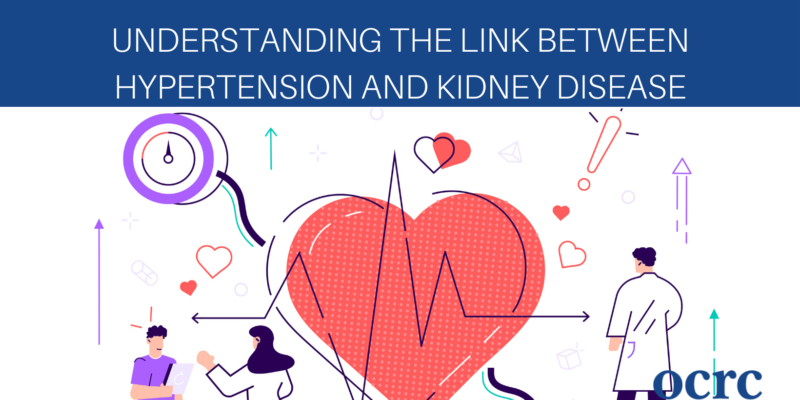
The kidneys play an essential role in the human body. They act as filters for the blood, removing toxins and regulating fluids to prevent excessive buildup. Healthy kidneys also keep the blood pressure at a healthy level. Blood pressure refers to the force of blood being pushed against blood vessels as it moves through the body. When the blood pressure is high, the force, or pressure, of the blood pushed against the blood vessels increases. High blood pressure—also called hypertension—can constrict and narrow the blood vessels in the kidneys. When this happens, the kidneys’ may no longer be able to function properly. If the kidneys aren’t doing their job, the excess fluid will not be removed from the blood; if the excess fluid is not removed from the blood, the blood pressure will continue to rise.
There’s a significant link between hypertension and kidney disease. Basically, high blood pressure damages the kidneys, and damaged kidneys lead to higher blood pressure… resulting in a concerning cycle. In fact, hypertension is the second leading cause of kidney failure, second only to diabetes. That being said, it’s important to note that hypertension can be both a cause and a result of kidney disease.
Renal hypertension specifically refers to hypertension caused by kidney disease. There are generally no noticeable symptoms of hypertension unless the blood pressure is dangerously high. In those cases, symptoms can include:
Because most people do not experience symptoms of hypertension, it often goes unnoticed. Renal hypertension can also cause chronic kidney disease. Symptoms of kidney disease can include:
While it’s not common to notice symptoms on your own, doctors can diagnose hypertension by measuring your blood pressure; kidney disease can be diagnosed through laboratory tests. Once a doctor has given a diagnosis of end-stage renal disease, the patient has options, including dialysis or a kidney transplant.
No one is exempt from the risk of high blood pressure, but certain risk factors affect some demographics more than others:
Regardless of which demographic(s) you fall under, there are several ways to manage your blood pressure and prevent or slow the progression of kidney disease, including:
Plus, improving your overall health is never a bad idea.
Approximately 37 million Americans are afflicted with kidney disease. If you or someone you know is dealing with kidney impairment, you may qualify for OCRC’s current clinical study. Click here to learn more.
